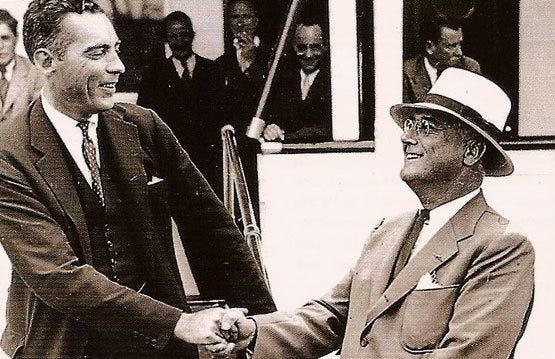Vincent Astor, Gentleman Spy
Heir to immense wealth and privilege, Astor made himself ‘useful’ as a secret agent for FDR in World War Two

WILLIAM VINCENT ASTOR’S LIFE was one of unenviable isolation and singularly strange circumstances. Literally in the manor born, he arrived into the world in the Fifth Avenue mansion of his grandmother, Caroline Astor, who ruled mercilessly over the Knickerbocracy of Manhattan high society. News of his birth in 1891, near the end of the gaudy binge of the Gilded Age, was announced on the front pages of the city’s newspapers, and invariably included estimates of the family’s vast fortune.
However, whatever expectations existed that he would grow into a suave prince of high society were eventually and forever abandoned. Tall and gangly, he would never have been mistaken for handsome. The sickly aspect of his youth never quite left him. Socially awkward among business associates, friends, and in public, he would invariably be defined by the enormous family fortune.
In 1912, his father, recently divorced and more recently married to a woman not much older than Vincent, perished on Titanic, and the majority of the family fortune and vast real estate holdings passed to Vincent. Just 20, he withdrew from his sophomore year at Harvard to manage a portfolio of real estate so extensive as to have earned his family the not altogether flattering sobriquet “New York’s Landlord.” Accumulated over generations of Astors, who bought but rarely sold, the holdings included large swaths of land throughout Manhattan and outer boroughs.
Young Astor, according to most accounts, was a competent though not particularly enthusiastic steward of the real estate empire. Perhaps more than anything, he exhibited signs of civic duty. He supported charities, built a playground and baseball field in Harlem, donated land to the city for public housing, and settled lawsuits not always in the interest of the family fortune. He served on obscure committees, supported well-intentioned reform movements lacking in social cache or fancy charity balls. In one instance, he landed on the executive committee of the America Rumanian-Jewish Emancipation Committee, a very niche organization dedicated to fighting antisemitism in Romania. He founded a home for convalescence of children of the underprivileged not far from his estate in Rhinebeck, New York, which still exists today as Astor Services for Children & Families.
“Is it unreasonable to suppose that because a man is rich, he is also useless?” he once asked. Of course, there was no lack of organizations seeking his financial support, while those that could make use of his natural intellect and enthusiasm were few and far between.
Just when young Astor became intrigued by espionage is unclear. As with many of its practitioners, he seems to have stumbled into it. During WWI he was among dozens of members of the New York Yacht Club who made their yachts available for service, then served as a junior officer on it as a convoy escort. And he seemed to have maintained contact with Office of Naval Intelligence (ONI) during the interwar years, providing morsels of intelligence as they came his way.




